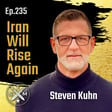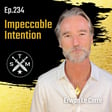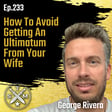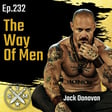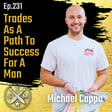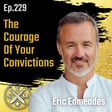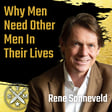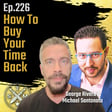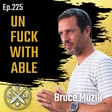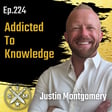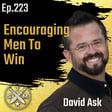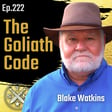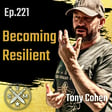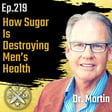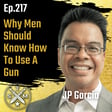
EP152: Adam Larson - The National Widower's Organization - You Don't Have To Go Through It Alone
"So here, six and a half years later, I’m a better person. And I’ve grown as a human being. I’ve done a lot of work, I put the time in. I found a place to put my feet down, I found a place to stand up, I found some solid ground to put my feet on and I found a community to connect with.”
Have you ever felt completely lost and alone after a devastating loss? How do you even begin to pick up the pieces? Do you know how men cope with the immense grief of losing a spouse? How do they navigate the overwhelming responsibilities of single parenthood while dealing with their own loss?
Many of us have faced or know someone who has faced the heart-wrenching experience of losing a loved one. Many men struggle with grief, feeling like they have to shoulder the burden alone. Grief is universal, but society often overlooks male grief, leaving men without the support they need during some of the toughest times in their lives.
Adam Larson is a dedicated advocate and board member of the National Widowers Organization. He shares his personal journey of navigating life after the sudden loss of his wife and how he found support through the National Widowers Organization, and discussing the importance of acknowledging male grief, finding support, and the different ways men cope with loss.
If you or someone you know is struggling with grief, remember, you're not alone. Reach out to the National Widowers Organization for support and resources. Visit their website, join a webinar, or connect with others who understand what you're going through. It's okay to grieve, and it's okay to seek help.
You’re invited to come to a Sovereign Circle meeting to experience it for yourself. To learn more, go to https://www.sovereignman.ca/. While you’re there, check out the Battle Ready program and check out the store for Sovereign Man t-shirts, hats, and books.
